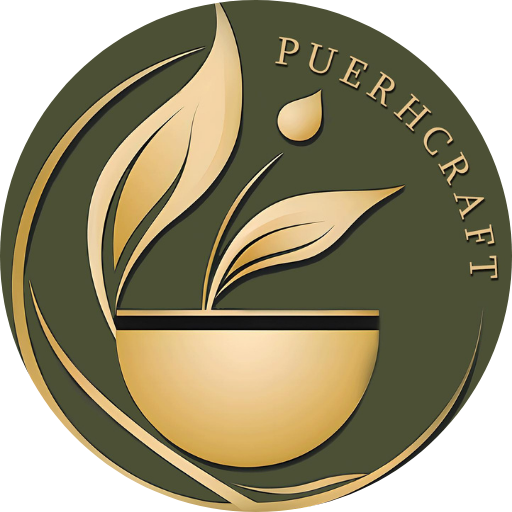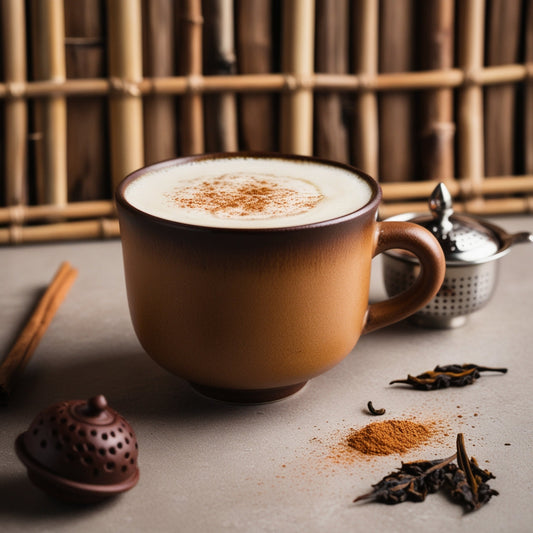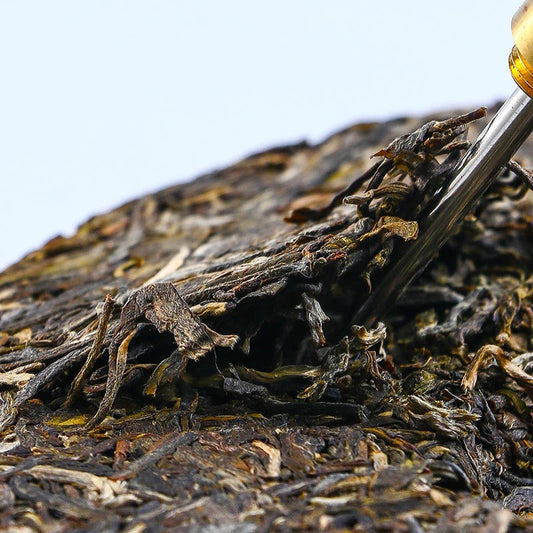Introduction
Imagine sipping a cup of rich, earthy Pu-erh tea from the ancient hills of Yunnan, China, or enjoying the tangy, effervescent taste of Kombucha, a drink with roots in Eastern Europe. Both beverages have captivated global audiences with their unique flavors and potential health benefits. Exploring the differences and similarities between these two fermented drinks can offer a deeper appreciation for what makes each special. Whether one is drawn to the centuries-old traditions of Pu-erh tea or the modern health trends of Kombucha. Dive into the world of Pu-erh tea and Kombucha to discover which one might become your next favourite brew.
Table of Content
- Introduction
- What is Pu-erh tea
- What is Kombucha
- Pu-erh tea vs Kombucha
- Conclusion
What is Pu-erh tea
Pu-erh tea, primarily produced in the Yunnan China, has been traditionally consumed by a significant number of Chinese people for centuries. Around 4700 years ago, in Ancient China, there was a strong belief among many that drinking Pu-erh tea could aid in treating various illnesses such as flu, constipation, diarrhea, body pains, and other ailments?
Pu-erh tea can be classified into two main types: Raw (sheng) and Ripe (shou). The classification depends on the processing methods applied after harvesting and withering the tea leaves.
In the case of Raw Pu-erh tea processing, the tea leaves undergo withering and are then piled into heaps, similar to composting, to allow bacteria to ferment. This critical stage, marks the beginning of the tea's characteristic development. They subsequently partially pan-fire the leaves to stop enzyme activity, lightly roll and knead them. Then dry them in an environment with controlled moisture levels, promoting gradual oxidation over time. After this, they promptly compress the tea leaves into cakes.
For a perfect brew, selecting high-quality pu-erh tea leaves is essential. The brewing process typically involves rinsing the tea leaves by quickly pouring hot water (approximately 206°F) over them in the chosen tea ware. After discarding the rinse water, you add fresh hot water for steeping, with an initial infusion time of 1-2 minutes, followed by longer steeping times for subsequent infusions.

What is Kombucha
Kombucha, also known as tea mushroom, tea fungus, or Manchurian mushroom when referring to the culture (Latin name Medusomyces gisevii), is a fermented, lightly effervescent, sweetened black tea drink. People sometimes refer to the beverage as kombucha tea to distinguish it from the culture of bacteria and yeast. It often includes additions like juice, spices, fruit, or other flavorings to enhance its taste. By the early 20th century, it had spread to Russia, followed by other parts of Eastern Europe and Germany. Today, people brew kombucha in homes globally and also commercially bottle and sell it.
Kombucha production involves fermenting sugared tea using a symbiotic culture of bacteria and yeast (SCOBY), often referring to it as a "mother" or "mushroom." Many attribute health benefits to drinking kombucha; however, little evidence supports these claims.

Pu-erh tea vs Kombucha
Health benefits
Comparing the health advantages of Pu-erh tea and Kombucha reveals that both offer benefits like improved digestion and immune support, but each has unique properties. Pu-erh tea is known for aiding in digestion and potentially lowering cholesterol levels. On the other hand, Kombucha provides probiotics that support gut health and may enhance immune function.
Cultural Significance
Both Pu-erh tea and Kombucha have fascinating historical backgrounds and unique brewing traditions that have allowed them to become beloved beverages across the globe. Pu-erh tea, celebrated for its deep, earthy flavors and reputed medicinal benefits, maintains a strong presence in Chinese culture and beyond with its centuries-old roots in Yunnan province, China. Meanwhile, Kombucha's journey from Eastern Europe to a worldwide health trend highlights its versatility and appeal, offering a tangy, effervescent drink rich in probiotics and potential health benefits. Both beverages cater to diverse tastes and health preferences, offering unique experiences, whether one prefers the rich, fermented complexities of Pu-erh tea or the refreshing, probiotic punch of Kombucha. Embracing these drinks means partaking in a piece of their rich histories and the health traditions they represent.
Taste Profile
Pu-erh tea leans towards earthy and smooth flavors shaped by fermentation and aging, Kombucha boasts a tangy and effervescent profile influenced by its fermentation with bacteria and yeast, alongside added flavourings. The choice between them often comes down to personal preference for taste and desired health benefits.
Caffeine Content
While both beverages contain caffeine, Pu-erh tea typically has a higher caffeine content compared to Kombucha. This makes Pu-erh tea a better choice for those seeking a more pronounced caffeine boost, whereas Kombucha might be preferable for those looking for a lighter, more refreshing option with lower caffeine levels.
Conclusion
Choosing Pu-erh tea over Kombucha offers a unique blend of tradition, rich flavors, and potent health benefits. With its deep, earthy taste and centuries-old heritage from Yunnan, Pu-erh tea provides a truly authentic experience. It is renowned for aiding digestion, potentially lowering cholesterol, and delivering a more robust caffeine boost compared to Kombucha. Embrace the time-honoured practice of enjoying Pu-erh tea and elevate your tea-drinking experience. Start your journey with Pu-erh tea today and savour the blend of health and heritage in every cup with Puerh Craft. Discover the unparalleled benefits and flavors of Pu-erh tea.
Q&A
Q. What are the main health benefits of Pu-erh tea?
A. Pu-erh tea is known for aiding digestion, potentially lowering cholesterol levels, and providing antioxidants that support overall health.
Q. How is Kombucha traditionally made?
A. To make Kombucha, people ferment sugared tea using a symbiotic culture of bacteria and yeast (SCOBY). Often enhanced with juice, spices, or fruit for additional flavor.
Q. What distinguishes the flavor of Pu-erh tea from Kombucha?
A. Pu-erh tea has earthy and smooth flavors due to its fermentation and aging process, while Kombucha boasts a tangy and effervescent taste influenced by its bacterial and yeast fermentation.
Q. Which beverage has a higher caffeine content, Pu-erh tea vs Kombucha?
A. Pu-erh tea typically has a higher caffeine content compared to Kombucha, making it a better choice for those seeking a stronger caffeine boost.






